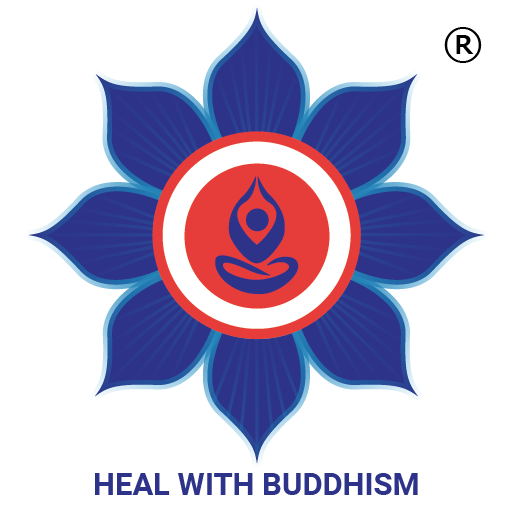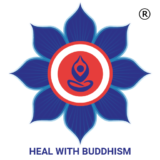Dear readers,
Do you agree what an incredibly ‘Fast & Furious’ two years it has been?
I believe this is a great topic to end 2021 while most of us are getting more and more confused with what or what not to do while COVID 19- OMICRON variant is terrorizing all of us, the citizens of this beautiful earth.
First, I would like to thank you all for reading my blog articles. I hope my articles were able to provide you a different perspective to mindfulness through an ancient wisdom that I follow with a great passion.
As I mentioned in my previous blog articles, [The Buddhist art of living & Wisdom, a guidance towards an autonomous moral conduct] Mindfulness taught in Buddhism is an art of living that not only brings tranquility to ourselves but also peace and harmony towards the society we live in. Among the three pillars of mindful living, “Seela” [the discipline] is considered as the most important skill set that we hold as intelligent human beings, while “Panna” [the wisdom] is considered as the most important asset of our mind. “Gihi-Seela” or the moral conduct for lay-men and women taught in Buddhism is not a strict rule but a guidance towards a healthy and happy lifestyle. It is a teaching that encourage autonomous behaviour rather than a rule imposed on any one who wish to follow this 2500 years old teachings.
Five precepts that forms the foundations of Buddhist moral conduct were never unique to Buddhism. Instead, they were considered as the basic moral behaviours expected from intelligent human beings in all civilised societies in the past, present and the future. For an example they still remain as the foundation of many judicial systems, where individuals are made accountable when they are unable to adhere.
On the other hand, moral conduct beyond five precepts were developed as an alternative for those who seek a spiritual life. Among those teachings you may come across some that are unique to Buddhist teaching as well as others that are practiced by non-Buddhists around the world, especially during their festive seasons. Strict fasting ritual is one of the most common, which is widely practiced by the followers of Hinduism, Jainism, Sikhism, Islam and Judaism.
How to practice Autonomous moral conduct?
Most interestingly, this was a question that was asked from Lord Buddha by the villagers of Kalama while he was travelling through the village of Kalama 2500 years ago. As stated in “Kalama Sutta” in Anguttara Nikaya of Tripitaka, following questions were asked.
- Should we follow the traditions because they are passed from generations to generations?
- Should we follow reports, such as historical accounts or news simply because the source seems reliable?
- Should we follow our own preferences simply because they seem logical or resonate with ones feelings?
In reply Lord Buddha stated that none of the above believes or views should neither be followed nor rejected without being intellectually tested against the results of its’ yields when put in to practice. Lord Buddha also stated that they must further be checked against the people with wisdom, to avoid possibility of any bias or limitations in one’s understanding of those results.
What is the way to intellectually test the yields of any actions when put in to practice?
As I mentioned in my previous blog Wisdom, a guidance towards an autonomous moral conduct, mindfulness is about modest lifestyle guided by the “do no harm” principle, which includes non-violence, loving kindness, and generosity. So if you ever wanted to intellectually test the yields of your action, all you have to do is ask the following questions from your-self.
- What are the intention of my actions?
- Does my actions directly or indirectly contributes to the physical or psychological wellbeing of:
- My-self?
- My family or friends?
- People I am acquaintance with [eg; people whom I study or work with]?
- People in wider community [eg: due to neglect of environmental, financial or social responsibilities]?
- Does my actions cause any direct or indirect harm to the physical or psychological wellbeing of:
- My-self?
- My family or friends?
- People I am acquaintance with [eg; people whom I study or work with]?
- People in wider community [eg: due to neglect of environmental, financial or social responsibilities]?
What makes this teachings unique?
It is the liberty of personal autonomy to practice a lifestyle with high moral conduct guided by wisdom [the right perception and the right intention]. In saying this, I don’t mean that the practices of other religious, cultural or judicial systems lack good intention. Instead, I believe the good intentions behind those practices must have being lost in translation over time to become merely a ritual or a rule rather than a mindful practice.
On the other hand, the teachings of this highly intelligent human being was never intended to challenge neither the religious rituals nor the kings’ law at that era, which were there to serve a purpose. Instead, what he taught was a way of life that any human being could learn to adapt and adopt without challenging or uprooting the thousands years old practices, which would have caused more chaos than good for a deeply entrenched society. I believe, this same reason could explain the secret behind current popularity of mindfulness around the globe as a practice that everyone could adapt or adopt to their modern lifestyle despite of their age, gender, and ethnicity, religious, social or educational background.
Most importantly, it is the practical nature of the teachings that is universal to any human being, which is applicable to any era. “Kalama Sutta”, “Sigalovada sutta”, “Parabhava sutta”, “Mangala sutta”, “Karaneeya-Meththa Sutta”and “Vassal sutta” are only a few among the most popular teachings that provide clear guidance to laymen and women on why and how they should be mindful about their actions through autonomous moral conduct [“Seela”], which include “Samma Vacha” [the right verbal conduct], “Samma Kammantha” [the right physical conduct] and “Samma Aajeeva” [the right livelihood].
As we all know, discipline is a skill that drives us towards success in personal or professional goals. It is a skill that has become more and more important under the current circumstances where each and every one of us could be responsible to prevent the spread of this virus.
I like to thank you all for reading my articles.
Wish you all a Happy, Healthy and Prosperous 2022.

